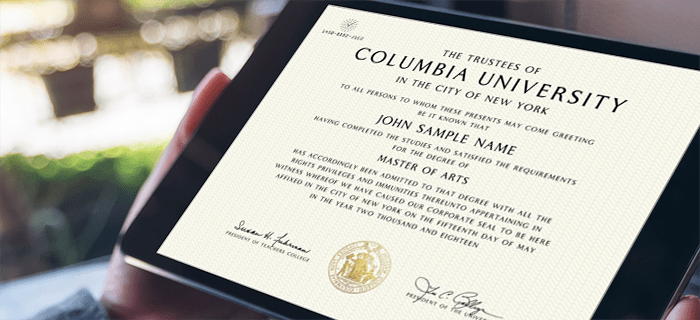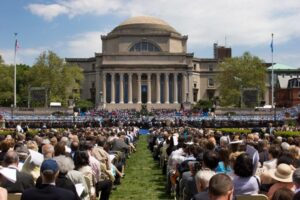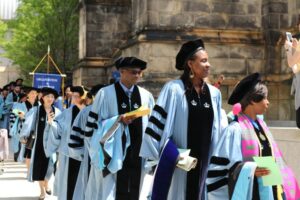Embark on an academic journey at Columbia University, renowned for its exceptional Masters programs. Explore a comprehensive range of disciplines, delve into cutting-edge research, and prepare yourself for a transformative career. Our programs are meticulously designed to equip you with the knowledge, skills, and connections to excel in today's competitive landscape.
As you navigate through this guide, discover the intricacies of our Masters programs, from admission requirements and program structure to career outcomes and research opportunities. Let Columbia University be your compass as you chart a course towards academic excellence and professional fulfillment.
Master's Programs Overview
Columbia University offers a wide range of master's programs across various academic disciplines. These programs are designed to provide students with advanced knowledge and skills in their chosen fields, preparing them for successful careers in academia, industry, and the public sector.
The university's master's programs are organized into several schools and departments, each with its own unique offerings. Below is a comprehensive list of all master's programs available at Columbia University:
School of Arts and Sciences
- Master of Arts in African Studies
- Master of Arts in American Studies
- Master of Arts in Anthropology
- Master of Arts in Archaeology
- Master of Arts in Art History
- Master of Arts in Asian Studies
- Master of Arts in Classics
- Master of Arts in Comparative Literature and Society
- Master of Arts in Economics
- Master of Arts in English
- Master of Arts in European Studies
- Master of Arts in French
- Master of Arts in Gender Studies
- Master of Arts in German
- Master of Arts in Greek
- Master of Arts in Hebrew
- Master of Arts in History
- Master of Arts in Iranian Studies
- Master of Arts in Italian
- Master of Arts in Japanese
- Master of Arts in Latin
- Master of Arts in Latin American Studies
- Master of Arts in Linguistics
- Master of Arts in Mathematics
- Master of Arts in Middle Eastern Studies
- Master of Arts in Music
- Master of Arts in Near Eastern Studies
- Master of Arts in Philosophy
- Master of Arts in Physics
- Master of Arts in Political Science
- Master of Arts in Portuguese
- Master of Arts in Psychology
- Master of Arts in Religion
- Master of Arts in Russian
- Master of Arts in Sanskrit
- Master of Arts in Slavic Studies
- Master of Arts in Social Work
- Master of Arts in Sociology
- Master of Arts in Spanish
- Master of Arts in Statistics
- Master of Arts in Turkish
- Master of Arts in Urban Studies
- Master of Arts in Visual Arts
- Master of Arts in Women's, Gender, and Sexuality Studies
- Master of Arts in World Literature
- Master of Arts in Writing
Admissions Requirements
Admission to Columbia University's master's programs is highly competitive, with a rigorous selection process that evaluates applicants based on their academic achievements, professional experience, and personal qualities. The general requirements for admission include:
• A bachelor's degree from an accredited institution with a strong academic record.
• Official transcripts of all undergraduate and graduate coursework.
• A personal statement outlining your academic and professional goals, and how the program aligns with your aspirations.
• Two to three letters of recommendation from individuals who can attest to your academic abilities and professional experience.
• A non-refundable application fee.
Specific programs may have additional requirements, such as:
GPA Requirements
Most programs require a minimum GPA of 3.0 or higher in your undergraduate studies. However, some programs, such as those in the business and engineering schools, may require a higher GPA.
Standardized Test Scores
Some programs require applicants to submit standardized test scores, such as the GRE or GMAT. The required tests and score thresholds vary by program.
Work Experience
Some programs, particularly those in professional fields, may require applicants to have relevant work experience. The amount and type of experience required varies by program.
Application Deadlines
Application deadlines vary by program. Most programs have a fall application deadline in December or January, and a spring application deadline in April or May. It is recommended to check the specific program's website for the exact deadlines.
Application Process
To apply to a master's program at Columbia University, you must submit an online application through the university's website. The application includes all of the required materials, such as transcripts, personal statement, letters of recommendation, and application fee.
The admissions committee carefully reviews all applications and makes decisions based on the applicant's overall qualifications and fit with the program. Applicants are notified of the admission decision via email.
Program Structure and Curriculum

Master's programs at Columbia University typically require the completion of 30 to 36 credits, with most programs requiring 32 credits. The duration of study varies depending on the program, but most can be completed in 1 to 2 years of full-time study or 2 to 3 years of part-time study.Each
program has a unique curriculum designed to provide students with the knowledge and skills necessary to succeed in their chosen field. Required courses provide a foundation in the core concepts of the discipline, while elective courses allow students to tailor their studies to their individual interests and career goals.
Required Courses
Required courses vary by program, but typically include foundational courses in the core areas of the discipline. For example, the Master of Science in Computer Science program requires courses in data structures, algorithms, and operating systems. The Master of Arts in Economics program requires courses in microeconomics, macroeconomics, and econometrics.
Elective Courses
Elective courses allow students to explore their interests and specialize in a particular area of study. For example, the Master of Science in Computer Science program offers elective courses in artificial intelligence, machine learning, and data science. The Master of Arts in Economics program offers elective courses in international economics, public finance, and development economics.
Unique and Specialized Courses
Many Columbia University master's programs offer unique and specialized courses that are not available at other institutions. For example, the Master of Science in Data Science program offers a course in "Deep Learning for Natural Language Processing." The Master of Arts in Journalism program offers a course in "Investigative Reporting."
Career Outcomes
Graduates of Columbia University's master's programs are highly sought after by employers in various industries. With a strong reputation for academic excellence and research, Columbia's master's programs provide students with the skills and knowledge necessary to succeed in their chosen fields.According
to the university's Career Services office, over 90% of master's graduates are employed within six months of graduation. The median starting salary for master's graduates is $75,000, with many graduates earning significantly more.
Alumni Testimonials
Here are a few testimonials from Columbia University master's program alumni:"My master's degree from Columbia University opened doors for me that would have otherwise been closed. I am now working as a project manager for a Fortune 500 company, and I am confident that I would not be where I am today without my Columbia education."
Sarah Jones, Master of Science in Engineering Management
"The master's program at Columbia University was challenging but incredibly rewarding. I learned from world-renowned professors and gained invaluable experience through internships and research projects. I am now working as a data scientist for a leading technology company, and I am grateful for the opportunities that my Columbia education has given me."
John Smith, Master of Science in Data Science
Research Opportunities

Columbia University provides a vibrant research environment for master's students, fostering their intellectual curiosity and preparing them for future research endeavors.The university houses numerous research centers and institutes that offer students access to cutting-edge facilities, renowned faculty, and collaborative research projects.
These include the Data Science Institute, the Zuckerman Institute, the Earth Institute, and the Institute for Social and Economic Research and Policy.
Research Centers and Institutes
The Data Science Institute (DSI) brings together faculty, researchers, and students from various disciplines to tackle complex data-driven challenges. DSI provides resources for data science research, including high-performance computing, data visualization tools, and expert guidance.The Zuckerman Institute is dedicated to advancing neuroscience research.
It houses state-of-the-art facilities for brain imaging, electrophysiology, and computational modeling. Students have the opportunity to collaborate with leading neuroscientists on groundbreaking research projects.The Earth Institute focuses on environmental sustainability and climate change. Its research encompasses climate modeling, sustainable development, and environmental policy.
Students can participate in field research expeditions, work with international organizations, and contribute to global environmental solutions.The Institute for Social and Economic Research and Policy (ISERP) conducts research on social and economic issues. ISERP's research areas include poverty, inequality, education, and healthcare.
Students can collaborate with faculty on projects that address pressing societal challenges.
Concluding Remarks

Columbia University's Masters programs are not merely academic pursuits; they are transformative experiences that empower you to shape the world around you. With a degree from Columbia, you will join a network of distinguished alumni who are making significant contributions in their fields.
Embrace the challenge, seize the opportunities, and let Columbia University be the catalyst for your personal and professional growth.
Essential Questionnaire
What is the application deadline for Masters programs at Columbia University?
Application deadlines vary depending on the program. Please refer to the specific program website for details.
What are the admission requirements for Masters programs at Columbia University?
Admission requirements vary depending on the program. Generally, applicants should have a strong academic record, relevant work experience, and competitive standardized test scores.
What is the average salary for graduates of Columbia University's Masters programs?
The average salary for graduates of Columbia University's Masters programs varies depending on the field of study and industry. However, our graduates consistently secure competitive salaries and career opportunities.




